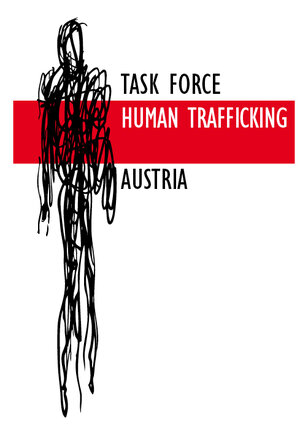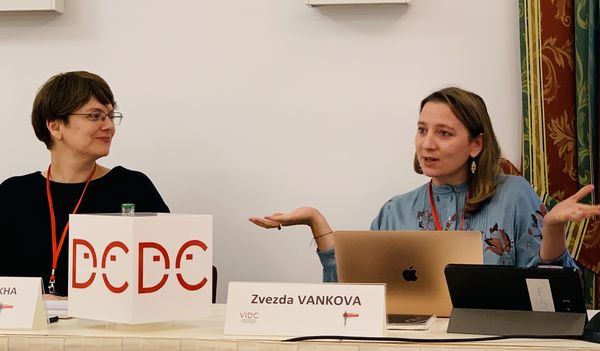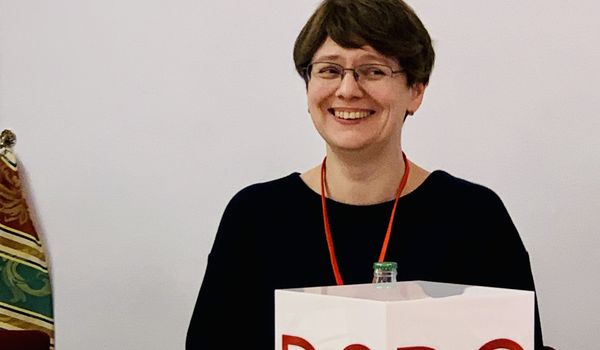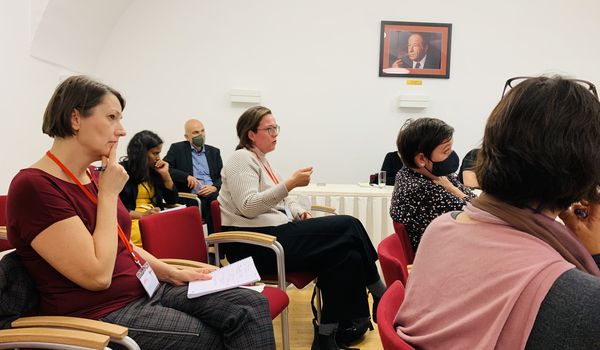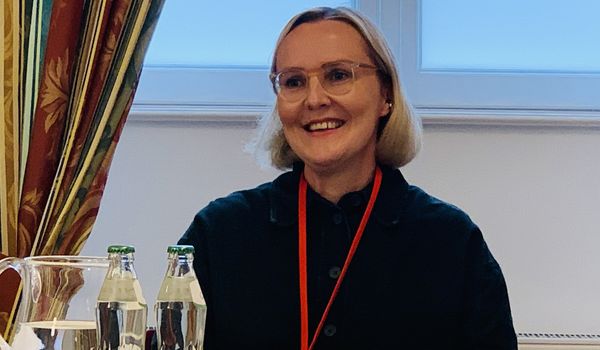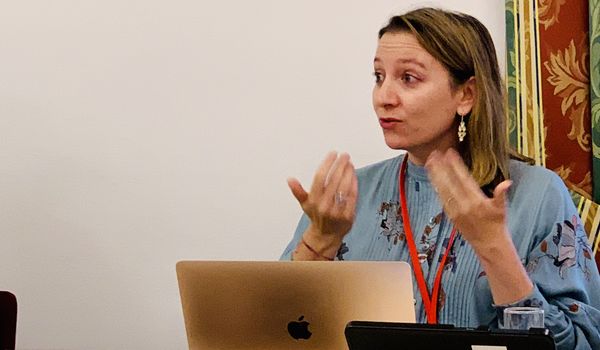The VIDC Workshop focused on the analysis of the potential for easier and faster access to the labour market in reducing the risks of Trafficking in Human Beings (THB).
Cherepakha emphasized on the challenges of the 7.6 million of the externally displaced Ukrainians who have fled from Russia’s war of aggression to Europe and of which 90 % are women and children with varying backgrounds in education, language and “foreign country”-experience. Therefore, the gender perspective plays a key role with regard to the displayed Ukrainians’ freedom, information and awareness, and should be a central aspect in every THB investigation and analysis.
Vankova continued by giving a legal description of the Temporary Protection Directive (TPD), which was exclusively provided to Ukrainians under the assumption that the war will end soon – as opposed to refugees from other war-torn countries like Syria, Afghanistan and Iraq. Vankova states that while the TPD provides faster access to education, healthcare and work, its temporary nature opens room for uncertainty and different implementations throughout the EU. Although the procedures for asylum seekers are lengthier and require individual assessment, the refugee status provides more security in the long-run. When discussing alternatives, Vankova stressed on the importance of finding new legal channels for refugees such as labour migration, family reunification and educational opportunities.
The moderated talk was wrapped up with Strobel’s introduction to the NETWORK, which provides refugees and companies with (1) know-how on legal questions and funding opportunities, (2) practical tips on integrating refugees into training and employment, (3) information exchange and cooperation between companies, and (4) visibility.
After an engaging discussion with the participants, Schuster presented a list of recommendations based on the preparatory talks with the experts, research and two previous VIDC workshops on labour exploitation:
1. Comprehensive, online/offline information and free multi-lingual counselling on labour rights
The dissemination of information offline and online and free-of-charge multi-lingual counselling are key measures in the area of prevention and should ideally be provided before refugee or displaced persons leave their country of residence, as well at the border crossing points or at least immediately after they enter the host country (i.e. counselling and first-response centers). In addition, an emergency hotline that can be contacted in multiple languages on 24/7 is recommended.
2. Access to free-of-charge legal and psychological support for victims of human trafficking for the purpose of labour exploitation and victims of labour exploitation
Each victim should have the possibility in each EU member state to defend his/her/their rights in court. There should be enough and free-of-charge counselling centers providing psychosocial and legal support for victims. These centres should be funded by the state and accompany the victims through the court procedure without additional costs. In addition, free legal support services should also be available in cases of labour law violations.
1 and 2 are addressed to ministries of labour and justice, chambers of labour and trade unions.
3. Free, easy and fast access to the labour market for refugees and displaced people
As the Universal Declaration of Human Rights states in Article 23 “Everyone has the right to work, to free choice of employment, to just and favorable conditions of work and to protection against unemployment.”
The right to free choice of employment is for example harmed by the requirement of work permits for owners of the “special protection” residence permit, for seasonal workers and for owners of temporary protection or by issuing work permits/visas tied to a single employer. This creates a strong dependence on the employer and increases the risk of labour exploitation.
In addition, measures such as language courses compatible with working hours, full-time childcare, psychosocial services (psychological counselling, psychotherapy, trauma therapy, etc.) are key for a fast access to the labour market.
4. Recognition of qualifications and provision of vocational trainings
The recognition of professional qualifications has been challenging for many refugees and displaced persons. Consequently, taking a less qualified work is often obviously leading to dissatisfaction and frustration. Moreover, it’s a brain waste and a loss for the European labour market which lacks qualified workers in many sectors.
Trainings for integration actors on the recognition of skills and qualifications, the facilitation of access of newly arrived foreign nationals to professional certifications and validations of prior work experiences and vocational trainings are effective measures to integrate refugees and displaced persons in the labour market.
3 and 4 are addressed to the ministries of economy, labour, education, chambers of commerce and industry and labour market services.
5. Trainings for control bodies, law enforcement and border authorities applying an intersectional, victim protection and non-discriminatory approach
ILO estimates that in 2021 27.6 million people worldwide were in forced labour, and 4.1 million in Europe and Central Asia (ILO, WalkFree, IOM, Global Estimates of Modern Slavery, 2022). As there is an incredibly large gap between the estimated and identified cases of THB for the purpose of labour exploitation, trainings on early identification and prevention for control bodies, law enforcement and border police are crucial.
In order to be able to identify a case it is not only essential to have knowledge of the indicators of THB defined by ILO and/or national bodies but also to be able to ask the right interview questions taking the sociocultural background of the potential victims into account. For these trainings the victim protection approach should be applied. Sensitizing the above-mentioned professional groups for different forms of discrimination based on gender, age, nationality, ethnicity, etc. (intersectionality approach) and make them aware of the vulnerabilities of the potential victims is an important cornerstone in the fight against THB for the purpose of labour exploitation.
5 is addressed to the ministries of interior, security, labour, labour marked services and all kind of control bodies (i.e. labour inspectorates, migration authorities).
6. Broad, high-profile awareness raising campaigns on THB in countries of origin and destination
Awareness raising and public education work as preventive measures and should therefore already take place in the countries of origin. Broad, high-profile campaigns with different effective tools that also portray the reality of the work situation in country of destination are recommended. Such campaigns can include posters and brochures, radio features, internet platforms, media and social media campaigns and awareness raising tools in communities itself.
These campaigns will also inform (potential) workers about their labour rights and the ways they can access them.
6 is addressed to the European Labor Authority (ELA) and to labor and social ministries in countries of origin and destination.
For all six recommendations, authorities should financially support civil society organizations providing services, offer them partnership and use their expertise.

